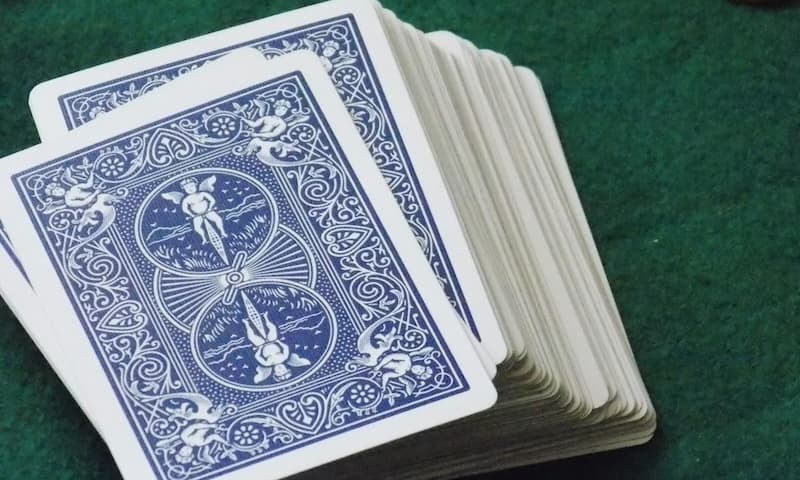Published: September 29, 2024
Handout: 'Falsus!' Card Game
Help your students practice speaking in Latin and their numbers with this fun bluffing card game. Similar to 'Cheat' and 'I Doubt It
Posted by
Related reading
More Latin Mottos from Everyday Life - A Free Classroom Presentation
"Latin Mottos Everywhere 2!" is another quick, zero-prep presentation that shows how Latin is still part of everyday life with famous mottos from schools, companies, and sports teams. Have fun sharing with your students!
Historical Look-Alikes: Fun Brain Break for Latin & History Classes
Give your students a laugh with our free “Historical Look-Alikes” slideshow! Compare Roman emperors and historical figures with modern celebrities and real-life museum visitors who look just like them. Perfect for Latin and history teachers.
Latin Is Everywhere! See the Latin Mottos All Around Us
"Latin Mottos Everywhere!" is a quick, zero-prep presentation that shows how Latin is still part of everyday life with famous mottos from schools, companies, and sports teams!

Free Handout: 'Falsus!' Card Game
Of all the classroom activities I did over the years, this one was always the class favorite. "Falsus" is the Latin language twist of a card game you might know as “Cheat”, “Liar”, or “B.S.” (Wikipedia Link). It is a phenomenal way for Latin students to practice their Latin numbers because each time they play cards, they need to announce what cards they are laying down and how many (e.g. "two fours"). This one-sheet handout has the rules to play on the front and helpful Latin vocab on the back. It was a joy seeing kids rapidly get better at Latin numbers and speaking in Latin, while having a blast doing it.
Enjoy playing Falsus!
How To Play
- Players: 3 - 6
- Deck: Use a standard 52-card deck with Jokers removed. For larger groups, you may want to use two decks or break the group into two games.
- Goal: Be the first player to get rid of all your cards.
Game Play
- Deal the Cards: Shuffle the deck and deal all the cards evenly to each player.
- Starting the Round: The player to the dealer's left goes first. They place one or more cards face down in the center and announce what rank they are claiming (e.g., "Two aces").
- Challenging a Claim: The next player can either:
- Accept the claim: By continuing the game.
- Challenge the claim: If anyone thinks the player is lying, they can challenge by saying “Falsus”. If challenged, the player must turn over the cards they played.
- If the cards match the claimed rank, the challenger must pick up the entire center pile.
- If they do not match, the player who lied must pick up the pile.
- Continuing Play: After a round, play continues clockwise, with the next player declaring cards of the next rank (e.g., if the first player said “aces,” the next player might say “twos”).
- Winning the Game: The first player to successfully get rid of all their cards wins.
Additional Rules
- Bluffing: Players can claim any rank, regardless of the cards they play (e.g. saying “two fives” when actually laying down two eights).
- Piling Up: If you play multiple cards, you can mix ranks but must declare only one rank.
- Optional: if the students speak in English during the game instead of Latin, they must take the entire discard pile.